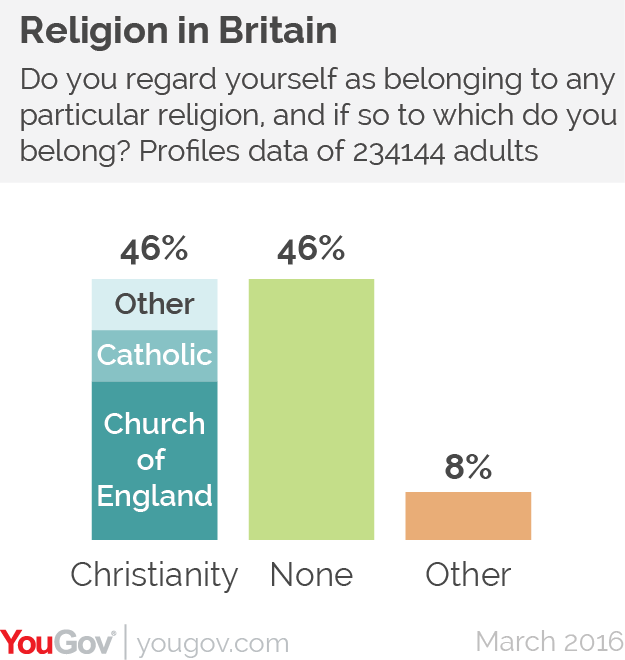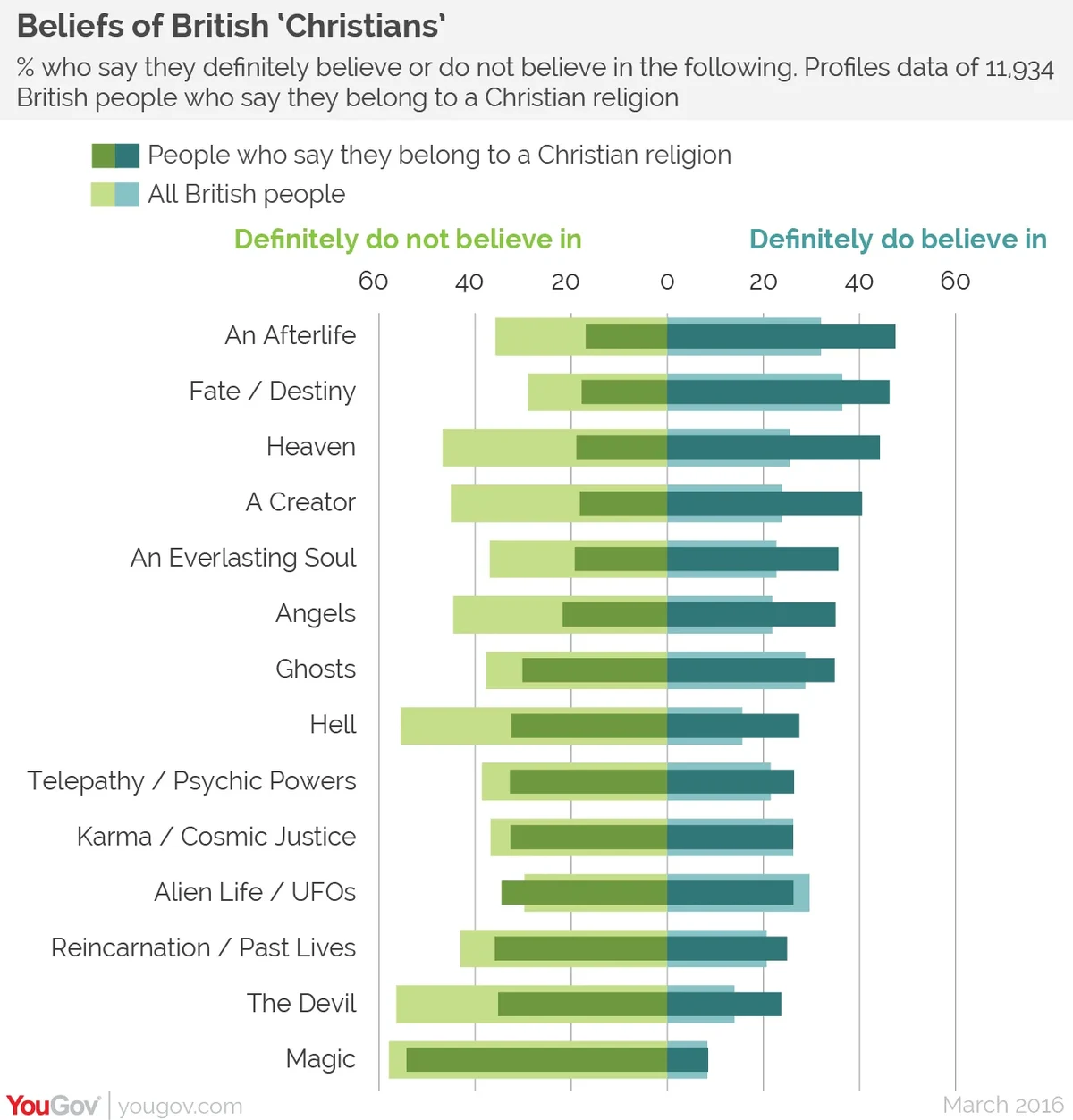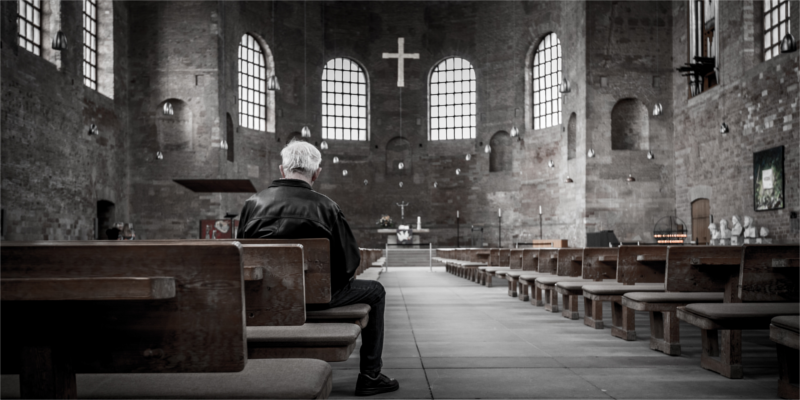British people are more likely to believe in ghosts than a Creator – and self-identified Christians are more likely to believe in aliens than the devil
Most British people say Britain is – and should be – a Christian country, and self-identified Christians make up around half of the population. But it's partly a cultural term – last year we found only 55% of self-identified Christians believe there is a God; the year before we found only 23% of the total population say they are very (3%) or fairly (20%) religious.
A new analysis from YouGov Profiles of nearly 12,000 people who affiliate with Christianity and a control set of 39,000 British people representative of the whole population reveals some startling juxtapositions in belief. Asked to say which of 14 spiritual or paranormal phenomena they definitely do or do not believe in, only 41% of Christians say they definitely believe in a Creator while 18% say they do not.
Christians are more likely to believe in fate or destiny (46% definitely believe, 18% do not), not necessarily a tenet of Christianity, than either heaven (44% believe, 19% do not) or an everlasting soul (36% believe, 19% do not).

And there is a tendency to believe in the friendlier parts of faith than those which are difficult to contemplate. People who say they are Christian are more likely to definitely believe in heaven (44%) than hell (27%), and more likely to definitely believe in angels (35%) than the devil (24%).
British people as a whole are most likely to believe in fate (36%) and alien life (30%), while in net terms belief in ghosts (-9) and karma (-11) is more prevelant than belief in a Creator (-21) or heaven (-21).
In 1983 only 31% of British people said they had no religion, which has now risen to just under half of all adults. In 1983 only 2% said they belonged to a non-Christian religion and this figure has now risen to 8%.











